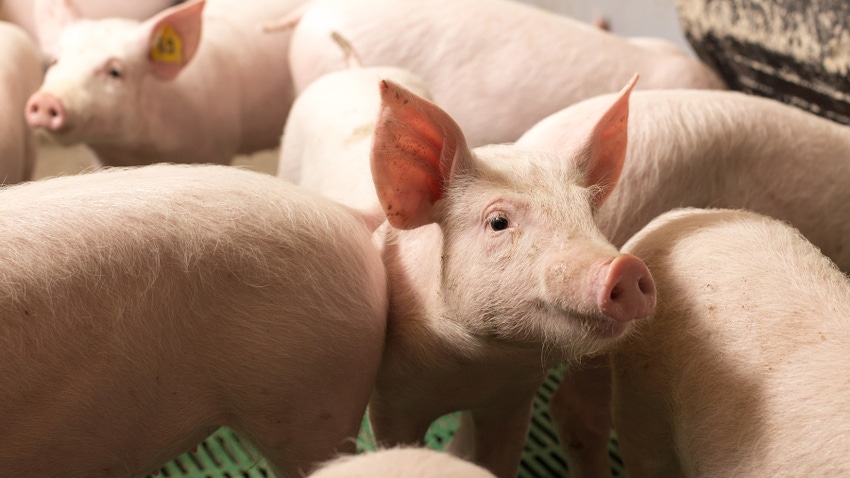June 26, 2023

by Maddy Rohr
A Kansas State University graduate student has completed a study on dietary formulation strategies she says will help to improve sustainability and efficiency in swine production.
Macie Reeb, a research assistant in applied swine nutrition, tested nursery pig diets that included various levels of a novel source of phytase.
“Phytase is a feed enzyme that has grown in popularity over the past few decades, and now most producers would include phytase in their diets,” she says. “However, when a new commercial phytase enters the market, studies are required to determine its efficacy.”
Because of limited availability of phosphorus in swine diets, nutritionists often increase inorganic phosphorus to optimize growth and ensure normal bone formation. Phytase is a common feed enzyme used to improve phosphorus digestibility, lower diet costs, and reduce the amount of phosphorus excreted in swine waste.
“In this study we determined growth performance and feed efficiency, and at the end of the trial, we also collected bones from a subset of the pigs to determine bone density and other mineralization indicators,” Reeb says. “The results of this study demonstrated that this new source of phytase could be used to optimize growth and efficiency and was successful at improving bone mineralization.”
“Ultimately this will help producers improve pig performance and increase profitability,” she says.
Reeb says additional research will be needed to test the phytase in diets containing different ingredients than what was used in this trial to ensure it will work with many different diet formulation strategies. Testing the phytase in other phases of production — including sows and finishing pigs — will be needed to confirm its benefits.
Rohr is a writer for KSRE News Service.
Source: Kansas State Research and Extension News Service
You May Also Like




